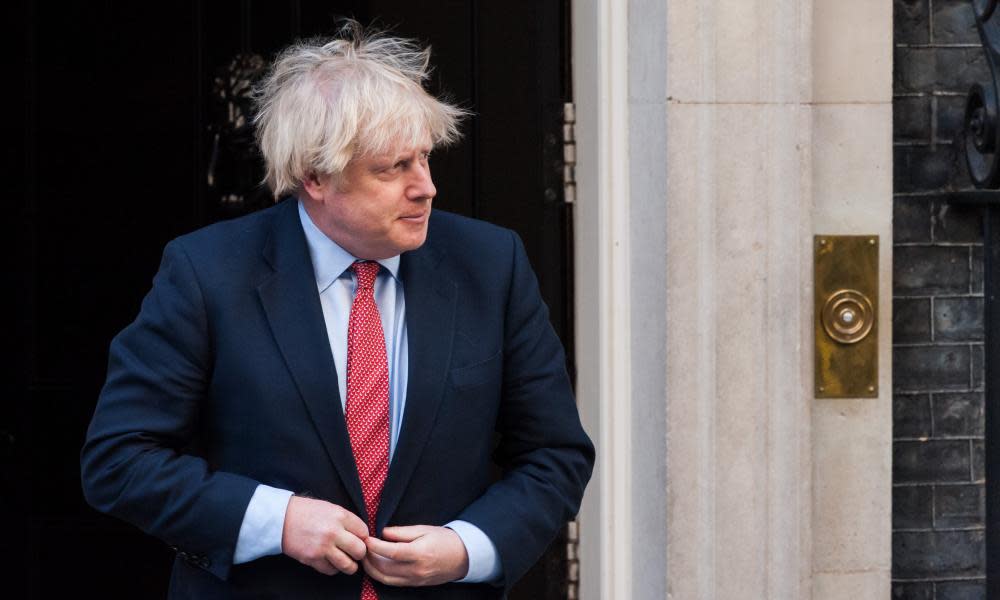The Guardian view on Downing Street briefings: time to change a broken system

Boris Johnson’s government began daily Downing Street briefings about the Covid-19 pandemic in the second half of March. Back then, the briefings tried to do two things at once. They addressed an urgent public need for reliable information about the advance of the coronavirus. They also tried to shape the way the public should respond to the health, lifestyle and economic threats that it carried. The structure of the briefings evolved on the hoof. They were far from perfect in a number of ways. Nevertheless, in the absence of parliament, which went into recess until 21 April, the briefings performed a useful public information and advice function for an anxious nation in lockdown.
Ten weeks on, that is quite simply no longer true. The gap between the public’s caution and the government’s desire to lift lockdown restrictions is stark. Mr Johnson has also been badly damaged by the Cummings affair. The daily updates have become increasingly tendentious and uninformative. Objectivity has fought a losing battle against the government’s increasingly beleaguered mishandling of the pandemic. It is therefore now time to end the briefings in their current form.
The decline in the briefings has had many features. Statistics have been presented in inconsistent ways that sow confusion and even suspicion. Ministers, whose talent varies, have grown more defensive and evasive when questioned. The inevitable overlaps between political and scientific messaging have become notably more opaque. Government suspicion of the media has caused curtailing of questioning and the refusal of follow-ups. On Tuesday, parliament, to which any government is constitutionally accountable, returns for two months. It is time to do things differently and better.
The defects of the Downing Street system came to a head on Thursday in the briefing over which Mr Johnson presided disgracefully. There was no serious attempt to inform in the spirit of sound science that had marked the early weeks of the pandemic. Instead, Mr Johnson resorted to browbeating of advisers, journalists and the public. Some of Thursday’s problems were of long standing: the presentation of meaningless aggregate figures, the ever-shifting baselines used for statistical trends (Thursday’s slides all started their measurements on different dates), the potentially misleading shapes of graphs, the now-you-see-them-now-you-don’t approach to information about care homes, and the abject abandonment of embarrassing international comparisons.
Other problems, though, were far more immediate. Mr Johnson’s desperation to keep Dominic Cummings in his job was at the heart of most of them. It meant that Thursday’s briefing became a concerted effort to bulldoze all questions about Mr Cummings out of the way, and instead to bombard the public with announcements about easing the lockdown. Mr Johnson bluntly refused to discuss Mr Cummings. When he then prevented England’s chief scientist and chief medical officer from answering any Cummings-related questions either, the prime minister crossed a line. He destroyed the briefings’ always uneasy balance between public information and political propaganda.
When Mr Johnson said that the purpose of Thursday’s briefing was “to crack on with our programme and [get] our messages across”, he gave the game away. That was not the original purpose of the briefings at all. But the briefings have long since shaken off much of their original purpose of providing clear public information. Instead they have become a politically driven daily broadcast at the public’s expense. Mr Johnson’s reputation and ratings have been thrown overboard as he clung to the manifestly out-of-order Mr Cummings. Now the reliability of the briefings has been sacrificed too.
As the governments of Britain edge their way out of the lockdown next week, it is time to disentangle the different threads that make up the briefings. Information about the pandemic should be under the control of independent government scientists, medical advisers and statisticians, who should be able to present the facts without political spin or censorship. Policy is the government’s and the people’s business. Ministers are accountable to parliament for what they intend to do next. Britain, especially England, is now advancing into a dangerous new phase of the pandemic. The country needs the right tools to ensure that wise choices are made. The current briefings make that far more difficult.

 Yahoo News
Yahoo News 
